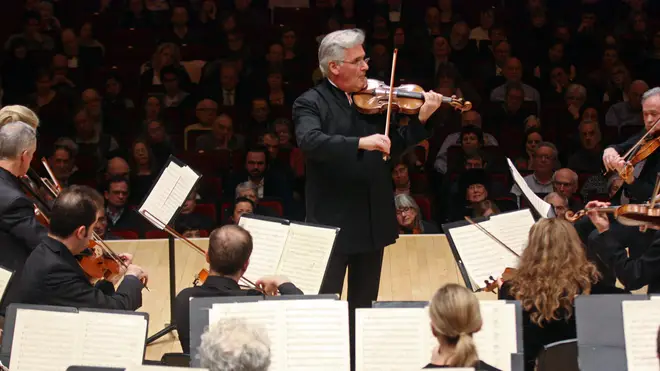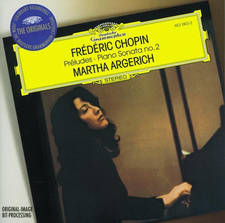Pinchas Zukerman: ‘A woman once told me she gave birth to the sound of my recording of Beethoven’s Violin Concerto’
27 September 2018, 16:17 | Updated: 27 September 2018, 16:26

The legendary violinist spoke to us in 2016 about his incredible career and why he's now turning his hand to conducting
What’s your earliest musical memory?
I remember my dad playing the accordion or the violin, probably at some kind of wedding or bar mitzvah, where he would be hired to play things like Monti’s Czárdás and background music basically.
How and why did you start playing the violin?
I was given one by my dad when I was seven. He taught me for a few months, especially how to tune and I found that I had a good ear. We went to a teacher just south of Tel Aviv and she said that she couldn’t fit me in. But then she went to tune my instrument and I said “oh no, I can tune” – I could hardly put the bow on the string but I could tune. “And she said, in that case I can start with him tomorrow”.
And now you devote much of your time to conducting, how did that first come about?
The decision to conduct was really about wanting to know more music. The extension into actually conducting without an instrument came about in about 1972 here in London. I was already doing a lot of directing and touring with the English Chamber Orchestra and then the members said to me, “why don’t you try conducting without the fiddle?” And it seemed to work really well. I’ve never done anything in my life in music that I had to do. Everything I’ve done has always somehow been a natural extension to all my performances, my learning of pieces.
What piece of advice would you give to someone training to become a violinist or conductor?
One piece of advice? That’s like asking a doctor for one pill to take care of everything! That’s a very difficult question to answer. First of all you have to love the music itself, you have to be connected to it like water in the desert. If you don’t have music in your being like that, then be a listener. But if you have a need for expression in the musical sense, you have to find out what sort of talent you have, you have to have hand-eye co-ordination, a good ear and you have to have very good teaching. And then to accommodate that you have to find the best training you can possibly afford. Music must be part of your total existence, from the minute you wake up to the minute you go to sleep. Then hopefully, with a little bit of luck, you can achieve high standards for yourself and continue the tradition of music-making.
What was the best piece of advice you were ever given?
Isaac Stern used to say to me “Pinky, be a sponge. You’re in New York, you have the incredible possibility of hearing, seeing and listening to everything that has to do with performance and music, rehearsals and concerts and everything else – just be a sponge, take it all in.” And that’s what I did, and I’m still doing it.
Which recording or project are you proudest of and why?
There are so many – I can’t choose a particular one. A recording is [a snapshot] of a day, that particular day. People have told me all sorts of things over the years, like “I gave birth to your recording of the Beethoven Violin Concerto”. It’s astounding where these things end up.
You’ve recently recorded Vaughan Williams’ The Lark Ascending. What’s it like to play?
It sits so well on the instrument and has a clarity that means the violin solo never gets covered by the orchestration. It’s effective from a virtuosic point of view – you have to go from the bottom all the way to the top of the instrument and back down again. When I first recorded it, I didn’t know what a lark was, never mind this Vaughan Williams piece. Daniel Barenboim called me and he said “What are you doing tomorrow, can you come to Wembley? I’m doing a Vaughan Williams recording of Greensleves etc.” And I said “what do you want me to do?” and he said “Something called The Lark Ascending.” And I said, “what’s a lark?” So he sent me the music the and said ok. I looked at the music, I didn’t think it was that difficult – but then I opened the second page and thought ‘oops’. I was literally still learning it in the car on the way to Wembley.
Finally, which composer, contemporary or from the past would you most like to meet and why?
I would like to meet a whole bunch of them for different reasons. It starts with Bach, I would love to hear Bach play the organ – his music is unbelievable, that’s where it all stems from. I would say, after that, probably Mozart – his output alone is just staggering. How can anyone write over 600 pieces, in less than 33 years? It’s amazing. I would like to meet all the great great ones and have long talks with them.


































